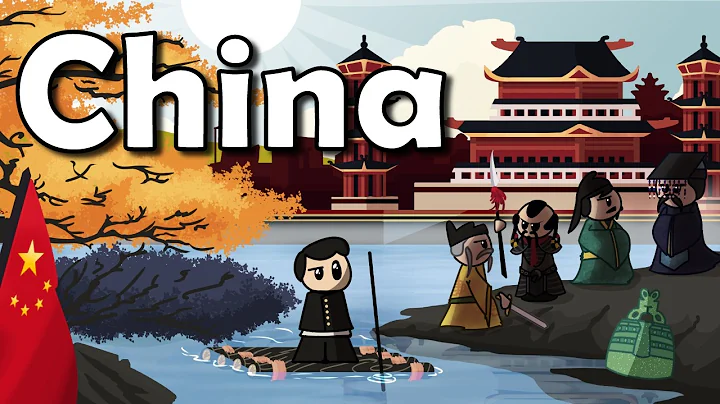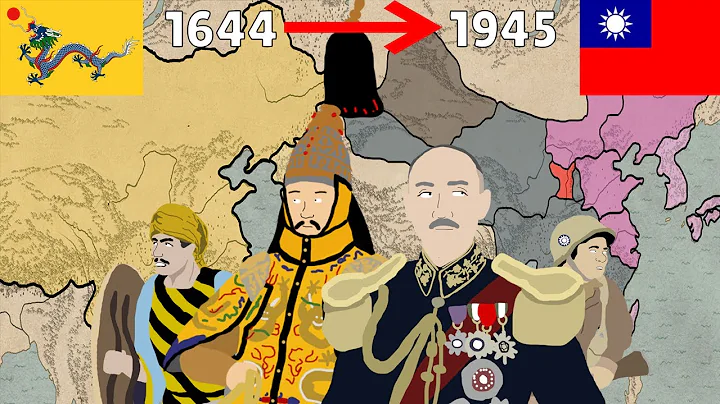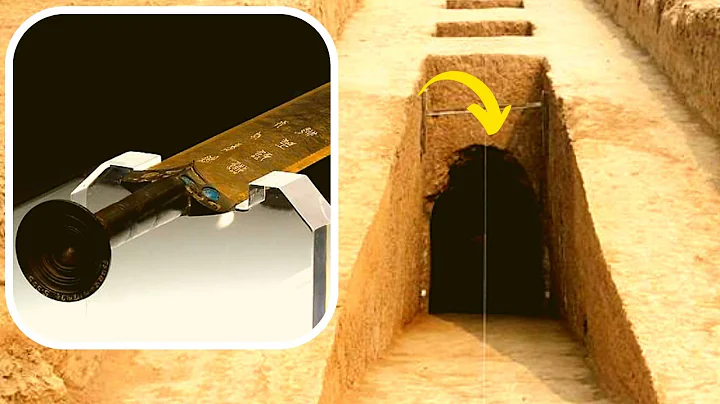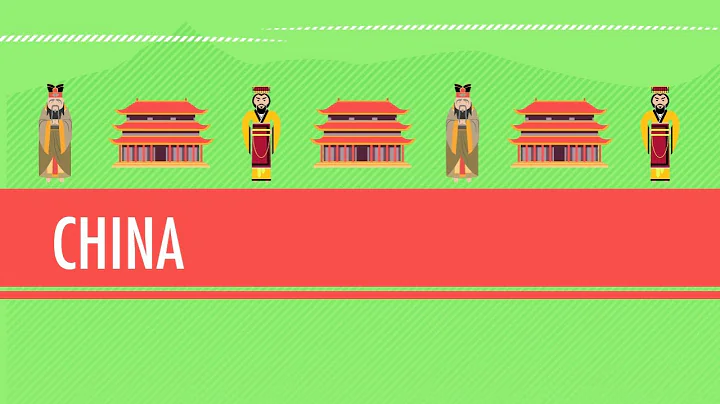In China's modern history, many people with lofty ideals have emerged, and China has many heroes since ancient times.
During the Anti-Japanese War, when the Chinese nation was facing the crisis of national subjugation, the Communist Party of China emerged and became the mainstay of defending the country and fighting against invaders.
However, in the long revolutionary process, there are always few people who can persevere. When the mind is weak, it seems inevitable to become a traitor. Gu Shunzhang, Zhou Fohai, Zhang Guotao, Xiang Zhongfa... these people will Nailed on the pillar of shame of history.
Among them, there is another person who we still don’t know how to evaluate. In terms of qualifications, he can be called a veteran. Some people say that if he waits until the founding of New China, he will be either a marshal or a general. This person was once favored by Chairman Mao and single-handedly promoted, and later he He became Lin Biao's right-hand man.
was such a hero who participated in the Autumn Harvest Uprising , but ended up mysteriously missing and no news was heard from him.
He is the Chief of Staff of the 115th Division of the Eighth Route Army Zhou Kun. People do not believe that such a person who has gone through the Long March and has been tested for a long time during the difficult Agrarian Revolution period actually absconded during a period when the situation had improved.
Even though nearly a hundred years have passed, this is still a mystery that people can't figure out. His whereabouts are one of the things that people are most concerned about during China's modern revolutionary war.
一,
Zhou Kun was born in 1902. He was the same age as Marshal Luo Ronghuan, and both were fellow Hunan fellows. Moreover, Luo Ronghuan was from Hengshan in the south of Changsha, while Zhou Kun was from Pingjiang in the north of Changsha.

So speaking of it, the qualifications of the two people are really similar, which has led countless future generations to speculate whether Zhou Kun would be awarded the title of general or marshal if he waited until 1955.
But this is just an if. In real history, Zhou Kun may have made a big mistake in the end and brought an unpleasant end to his military career.
Zhou Kun's original name was Zhou Xukun. When he later came to Jinggangshan , when boss Zhu Dezhu issued the combat order, he changed his name.
Zhou Kun was not happy when he was young. His mother died not long after giving birth to him. His father, Zhou Linggen, was a farmer who had to support the family and take care of several children. In desperation, the father had no choice but to bear the pain of Zhou Kun. Kun was adopted as an adopted son by Zhou Yongbin, who was of the same clan and generation.
It can be said that Zhou Linggen's actions changed Zhou Kun's fate. Zhou Yongbin's family belonged to the Pingjiang Tuolian Zhou family, a well-known local family. The family promoted learning and education, and was a rare scholarly family .
Zhou Kun's adoptive father was a scholar in the late Qing Dynasty. He was well-read in poetry and books. After he took Zhou Kun home, he regarded him as his own son and taught him everything he had learned from the Enlightenment era.
By 1919, Zhou Yongbin's younger brother Zhou Libin became the principal of Pingjiang County Normal School. This was a new-style school that not only taught a subset of classics and history, but also rare Western courses such as mathematics, physics, biology, and chemistry.
Zhou Yongbin saw that his adopted son Zhou Kun was 17 years old. He decided to give the child all the love he could, so he sent him to school to learn new culture and knowledge.
In his later Red Army career, Zhou Kun's student career made him stand out among the Red Army and became a senior commander of the Red Army, which basically relied on the enlightenment at this moment.
Zhou Kun lived up to his adoptive father's expectations and was very smart. He drew inferences from one example in class and was deeply loved by his teachers. At this time, Zhou Kun also developed a special hobby, which is listening to operas.
The student career was short-lived. Four years later, in 1923, Zhou Kun graduated from the Normal School. Although Zhou Kun was 21 years old at this time, he was very confused about the future.
Zhou Kun returned home thoughtfully. After returning home, his adoptive father Zhou Yongbin was standing at home waiting for him. The first question was what are my son's future plans?
This question stumped Zhou Kun. He was not young and frivolous. This question had been in his mind for a long time. He felt that he was an adult and needed to reduce the burden on his family. At that time, he was infected by the May Fourth Movement in society and felt that it was too big. Men should be like this.
Therefore, he decided to gain experience in the society. Zhou Kun first went to the county town called "Huilongzhai" and became an apprentice. This job was very respectable at the time.
But Zhou Kun was not satisfied at all. He had a good relationship with another clerk in the store, Zhou Shengde. Although Zhou Shengde was his cousin by generation, he was only one year older than him.
The two of them had similar upbringing experiences, shared similar interests, and had a desire to serve the country. It didn't take long for the two restless people to get acquainted with Yu Benmin, the president of the Pingjiang County Farmers' Association.
His status is extraordinary. Yu Benmin is a famous hero of our party and a hero of the Revolution of 1911. Chairman Mao personally introduced him to the party.
Yu Benmin was very discerning, and he could tell at a glance that the two Zhou brothers had lofty ambitions. After a while, Zhou Kun and Zhou Shengde were infected by Yu Benmin's revolutionary ideals. It didn't take long for Zhou Kun to appear on the streets.
He began to participate in and organize the local peasant movement. By this time, Zhou Kun had completed his transformation and became a staunch proletarian warrior and embarked on a revolutionary career.
2.
In order to carry out the magnificent revolutionary struggle, Zhou Kun forgot all about sleep and food, and went to the mountainous areas every day to mobilize paper workers and farmer brothers to carry out revolutionary propaganda. At that time, the party organization in Pingjiang arranged for Zhou Kun to go to the southeastern countryside of the county, pretending to sing shadow puppets. The artists of are actually popularizing revolutionary ideas to the poor people.
Gradually, Zhou Kun gradually grew up, and the red flame flowed in his heart. In August 1926, a team came to Pingjiang. Under the banner of the Northern Expeditionary Army, they fought for the eternal survival of the Chinese nation. its foundation.
The Northern Expedition left guns and ammunition to Yu Benmin. Because of this, a team called the Pingjiang Peasant Self-Defense Army was established. The legend is paved with blood. This is one of the first revolutionary armed forces of our party. Zhou Kun is only 24 years old. The 20-year-old youth also shouldered a gun.
At this moment, Zhou Kun's revolutionary struggle experience has been admirable and he has become a key member of the Peasant Self-Defense Army. His thoughts are the fire, and the spear in his hand is the magic weapon to defend Red China.
At this time, Zhou Kun still didn't know what kind of danger he and the new political party would face.
On April 12, 1927, Chiang Kai-shek launched a bloody storm against our party in Shanghai. This was the infamous "April 12 Counter-revolutionary Coup". Countless Communists were brutally murdered by the Kuomintang armed forces.

People could not have imagined that Chiang Kai-shek would do such an act before his anti-imperialist, anti-feudal, and anti-warlord Northern Expedition mission was successful. Blood flowed into the river. The first cooperation between the Kuomintang and the Communist Party collapsed. Amid the white terror, the budding communism faced severe challenges. test.
The number of party members dropped sharply from 60,000 to 10,000, and the revolution was severely damaged.
At this time, a talented and strategist moved to Hunan. His name was Mao Zedong. The young Mao Zedong came with an important mission, which was to reorganize the Hunan Provincial Committee of the Communist Party of China and lead the Autumn Harvest Uprising on the border of Hunan and Jiangxi.
China cannot be destroyed, nor can communism be destroyed. In early September, Chairman Mao held a military meeting in Zhangjiawan, Anyuan, Jiangxi. During this meeting, the specific arrangements for the Autumn Harvest Uprising were laid down.
After this meeting, the revolutionary ranks of workers and peasants in Hunan began to merge, and the trickles merged into a large river. At this point, the First Division of the Hunan Workers' and Peasants' Revolutionary Army was established.
Zhou Kun wiped his gun. He saw too many comrades sacrificed. He became a squad leader of the 3rd Battalion of the 3rd Regiment.
htmlOn September 9, the Workers' and Peasants' Revolutionary Army vowed to revolt. The next day the army stationed at the Xiuping border. That night, Zhou Kun and Zhou Shengde stood guard in the suburbs of Tonggu , the headquarters of the 3rd regiment, to strengthen security.In the night, a young man wearing Chinese tunic suddenly arrived at the regiment headquarters. He said he was looking for the regiment leader. Zhou Kun looked at the visiting guest cautiously because he claimed that he was chased by reactionary armed forces when he rushed to Tonggu. , lost the certificate.
Zhou Kun asked this man's name and wanted to escort him to the regiment headquarters. The young man said in Hunan dialect: "My surname is Mao, and my name is Mao Zedong."
This was the first time in his life that Zhou Kun met Mao Zedong, the special commissioner of the Central Committee and former secretary of the Hunan Provincial Party Committee . The two began with a wonderful misunderstanding.
During the wars before and after the Autumn Harvest Uprising, Mao Zedong commanded the troops to attack Baisha, Later, they took the east gate. Among them, Zhou Kun, a young man, was particularly eye-catching. He made great contributions to breaking through the enemy.

Later, when the revolutionary army moved to the countryside, Mao Zedong saw Zhou Kun's backpack was particularly bulging. After asking, Only then did I realize that there were several books hidden in his backpack. The chairman was very happy to see this and often came to borrow them. Over time, he became familiar with Zhou Kun, who was well-read in poetry and books.
On September 29 of that year, Chairman Mao came to visit Zhou Kun. Sanwan Village in Yongxin County completed the adaptation of Sanwan to the uprising troops. The idea of the people's army was formed from then on, ensuring the proletarian nature of our army and laying the foundation for a new type of people's army
Zhou Kun politically and organizationally. In this year, he was promoted to platoon leader, and he was a determined warrior with outstanding military exploits. In the same year, under the party's banner, Zhou Kun officially joined the Communist Party of China.
Soon after, Chairman Mao entered Jinggangshan, where the army met, and he was the first. Rural revolutionary base areas also appeared here, and the country's first official Fourth Army of the Red Army was established. In the summer of 1930, the Fourth Red Army was expanded into the First Red Army, which included the Third Red Army and the Red Fourth Army. Army and the 12th Red Army, with a total of more than 20,000 people
A single spark can start a prairie fire. In this year, Zhou Kun became the division commander and assumed the position of senior commander of the Red Army. He led his troops under the leadership of Zhu De and Mao Zedong. Next, he participated in three anti-encirclement and suppression operations.

The sword was unsheathed and the cold light was frightening. Zhou Kun and his comrades lured the enemy deep and carried out the most dangerous combat missions, concentrating their forces to defeat them one by one. Zhu De and Chairman Mao took all this into account.
In October of the next year, Zhou Kun was appointed commander of the 10th Red Division. At that time, his superior was a military commander who was younger than himself. His superior was Lin Biao, one of the most capable generals in China.
Soon after, a rumor spread - "Lin Biao has three guns, Chen Guang, Zhou Kun and Wang Liang". Zhou Kun is so capable that he is one of Lin Biao's " heavy machine guns ". In fact, Zhou Kun is also. Living up to expectations, Zhou Kun later became the division commander of the 10th Division of the Red Army. It was the most powerful force in the Central Red Army and the elite among the elite. In the spring of 1933, Zhou Kun and the Red Army smashed with their sword. In the fourth anti-"encirclement and suppression" campaign, he served as the main attacking force in the Huangpi and Caotaigang battles. He and his brother units annihilated three enemy divisions and captured more than 10,000 enemy soldiers, which shocked the whole world.
htmlOn July 29, the Military Commission of China awarded Zhou Kun a second-class Red Star Medal. In this way, Zhou Kun took this shining medal to Ruijin University and became the director of education of the Red Army University.Zhou Kun was both civilized and military, and understood the changes of ancient and modern times. He was a commander on the battlefield and the best teacher in the classroom. His combat experience was passed on to numerous students day and night. He became the earliest military educator in our army. Home.
In the second year, Zhou Kun moved forward with the Central Committee of the Communist Party of China and carried out an arduous and tragic strategic transfer with 86,000 people. The great Long March began.

Under the command of Chairman Mao, the Central Red Army completed the epic journey of two occupations of Zunyi, four crossings of Chishui, skillfully crossing the Jinsha River, passing through the Yi Min District, forcibly crossing the Dadu River, and flying to capture the Luding Bridge .
During this journey, Zhou Kun was favored by Lin Biao and served as the deputy chief of staff of the 1st Red Army. However, this low-level arrangement did not last long. In August, Zhou Kun was promoted to the chief of staff of the 1st Red Army. After another hardship, the Long March successfully arrived at Wuqi Town in northern Shaanxi.
At this time, Zhou Kun was the idol of the people. Not only did he become the principal of the Chinese Workers' and Peasants' Red Army School, he also became the principal of the Chinese Anti-Japanese Red Army University in February 1936.
Within a few years, Zhou Kun witnessed a new historical event. Zhang Xueliang and Yang Hucheng launched the Xi'an Incident. . The second cooperation between the Kuomintang and the Communist Party began. Countless young students went to Yan'an to serve the country and apply for the university where Zhou Kun was. resists large .
At this time, no one would believe it if someone said that Zhou Kun would suddenly disappear in the future and that he would be carrying a huge amount of debt when he disappeared.
So, who would have thought that this kind of thing would really happen.
IV.
In late January 1938, the Military Commission of the Nationalist Government held a national conference of chiefs of staff at all levels above the division in Wuhan. At that time, Marshal Ye Jianying, on behalf of the 18th Group Army, our Eighth Route Army, gave an oral report to the conference and submitted a written report.
Zhou Kun submitted a written report to the meeting on behalf of 115 division . It was this trip to Wuhan that completely changed Zhou Kun. Looking back on the scene now, he still feels sad.
In February 1938, Zhou Kun took a train back to the Shanxi front line. Something seemed to have changed when he came back this time.

Wang Zhengzhu, who was the combat staff at the time, recalled in the book that when Zhou Kun reported to Zuo Quan on the Chiefs of Staff meeting, he once showed a lot of dissatisfaction, expressed how "embarrassed" he was in Wuhan, and even said that he saw The chief of staff of the Kuomintang has his own small mansion, car and wife.
On the other hand, our Communist Party has nothing. Even our Eighth Route Army Office in Wuhan is very "stingy". We are not even willing to give more pocket money to hire rickshaws ourselves.
At that time, Marshal Peng Dehuai was immediately angry. He slapped the table and severely criticized Zhou Kun. He also pointed at him and said: "What you (Zhou Kun) envy is our fundamental stance on issues. This is the difference between our Communist Party and the Kuomintang." ! This is the glory of being a Communist! Otherwise, we will be no different from them!"
also gave a detailed explanation of this incident in "The Complete Biography of Peng Dehuai". At that time, Zhou Kun was very incomprehensible, and even some Not convinced. Later, Zhou Kun kept complaining. After getting used to the people in Wuhan, he always felt very uncomfortable.
We still don’t know what Zhou Kun is thinking, but he also received a large amount of money this time. This is a whole month’s salary of the 115th Division, a full 60,000 yuan in legal currency .
What happened next made the comrades who were familiar with Zhou Kun even more surprised and even incomprehensible.
115 Division Headquarters Operations Section Chief Wang Bingzhang recalled that in February 1938, Chief of Staff Zhou Kun went to the 2nd Theater Headquarters for a meeting, and at that time he received a military expenditure of 60,000 yuan.

Wang Bingzhang
But when leaving, Zhou Kun suddenly handed a satchel to the guard and said righteously: "Here are important documents. They must be handed over to Chief Wang of the Operations Section!"
The guard was anxious at that time. Wang Bingzhang was found on the ground. Wang Bingzhang opened it and took a look. What shocked him was that the package was not an important document at all, but a full 30,000 yuan in banknotes.
At this time, Wang Bingzhang had realized that something bad had happened. He flipped through it and found a text message inside. The text on the letter was obviously written by Zhou Kun.
The full text of the letter is - "I received a total of 60,000 yuan. I will take the other 30,000 yuan with me, and give the other 30,000 yuan to the security guard for inspection."
At this time, Wang Bingzhang took action, and he understood that Zhou Kun might Absconded with 30,000 yuan!
One stone stirred up a thousand waves. Since then, the organization has been looking for Zhou Kun's whereabouts, but after so many years, he seems to have really disappeared.
Many people say that he returned to his hometown anonymously, but this is probably not true. People do not believe that a soldier who has experienced so many hardships will betray the revolution at the last moment and make such an extremely confused choice.
However, Zhou Kun did have such a motive. At that time, the monthly allowance for division and brigade level cadres of the Eighth Route Army was only 5 yuan. This was an unimaginable temptation for anyone. This was a sum of money that could be achieved at that time. The wealth that makes people rich for a lifetime can buy two cows with only one hundred French coins.
There are still people who vouch for Zhou Kun's character and think that his sudden absconding is a lot unreasonable. If he is greedy for money, why do he still have the conscience to realize that he only kidnapped half of the military expenses?
More people speculated that in that era of war and chaos, it was not uncommon for a person to disappear for no reason. It was also very likely that it was to "not put eggs in one basket", disperse the money, and then return to the organization. At that time, he was targeted by gangsters, and he encountered misfortune from then on.
What the truth is is no longer clear. However, in order to ensure that the fine traditions and advanced style of the Red Army continued to be carried forward, and the political purity of our party and army was maintained. In the end, our party gave Zhou Kun the harshest conclusion and punishment based on the greatest possibility - betraying the revolution, absconding with money, and expelled from the party.
There is a saying that China has been well protected by the bravest among them since ancient times. Chen Duxiu, Li Dazhao, Xiang Ying, Fang Zhimin, Deng Xiaoping, Su Yu, Liu Bocheng, Yang Jingyu... These familiar names will be Always shine brightly.
But more of them may be people like Zhou Kun who were originally brilliant but disappeared with their money in the end.
This story is really sad. If people in troubled times want to live their lives well, they may really need extraordinary will and luck. Introduction to the editor of
: Song Xiaole, a post-90s dad, comes from an ordinary family. He has been writing full-time for 5 years. He made his first pot of gold through self-media writing and has cooperated with many new media companies. If you are interested in self-media, writing, and making money, and want to do side jobs or part-time jobs every month during your off-duty time, you can search and follow my public account " Today's People Magazine " on WeChat to discuss and make progress together.











![Source: Global Times China's first commercial space launch site starts construction [Global Times reporter Fan Wei] "Global Times" reporter learned from China Aerospace Construction Group Co., Ltd. on the 7th that on July 6, another space launch site in my country - Hainan The co - DayDayNews](https://cdn.daydaynews.cc/wp-content/themes/begin/img/loading.gif)









